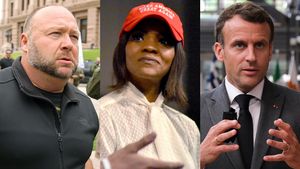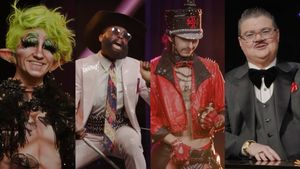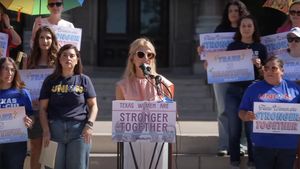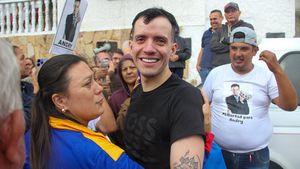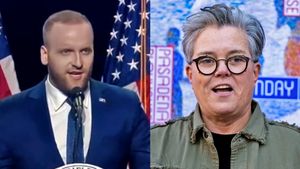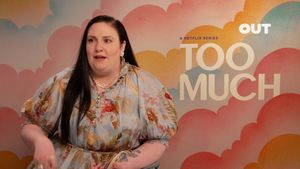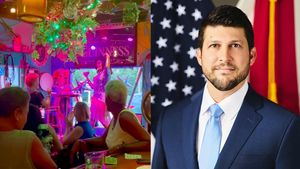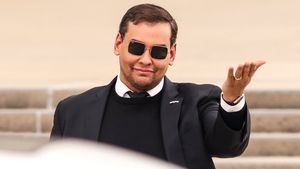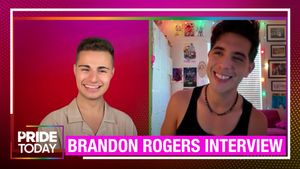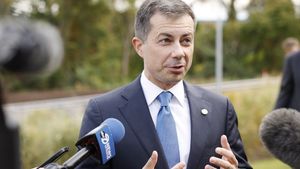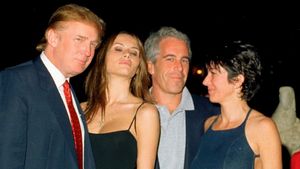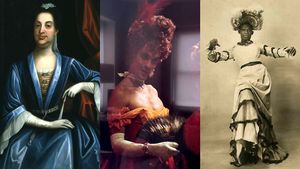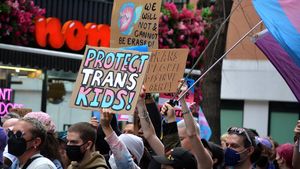Trigger and spoiler warnings...
After last season's horrific finale where Tyler Down is graphically sexually assaulted with a broom, I vowed to myself that I wouldn't watch any more of Netflix's controversial show 13 Reasons Why, which is problematic at best and a flaming heap of garbage at worst.
I planned on keeping that promise—that is, until I got home Friday night and my roommate was already a few episodes deep. So I decided to settle in, and we quickly binged it all.
And I regret it.
Most of season three reads as an apology tour for a serial rapist. We find out in episode one that Bryce Walker, the vile jock who raped Hannah Baker in season one, has been murdered and any one of the principal castmates had probable cause to kill him. Through flashbacks, we're forced to see the "good side" of Bryce where he tries to make amends for his "mistakes," but fails so spectacularly that he ends up dead.
Throughout all that nonsense, 13 Reasons Why manages to introduce and bury a gay character in a matter of a few episodes.
We met Montgomery de la Cruz last season, but we didn't know much about him besides his All-American asshole jock demeanor that took a turn for the worse when he graphically sodomized Tyler against his will. The assault remained a secret and lingers over Monty's character all season long.
In episode five of this season, Monty attends a party with Bryce. As they walk up to the mansion that these high schoolers are partying in, Monty makes intense eye contact with a boy we later learn is named Winston.
"Who's the Latinx?" Winston leans over to his friend as Monty walks past, though I have no clue A) how anyone would assume this man was anything other than caucasian and B) why this kid refers to someone as "the Latinx." Is this a racist pejorative? Some progressive new slang? Why not just Latino? I don't know what to feel in this moment besides amused confusion. In reality, the actor who plays Monty, Timothy Granaderos, is half Filipino, but I digress.
After a few drinks and more lingering eye contact, Monty and Winston uncomfortably hook up in an upstairs bedroom the way closeted kids struggling with their sexuality do. But as Bryce and Monty leave the party, Winston gets up and says bye to him in front of everyone. Wrong move. Monty calls the kid a f****t and promptly beats the shit out of him.
As Monty's repressed sexuality is clearly playing a role in his rage and violence, the scene adds an upsetting new layer of homophobia and self-loathing to his prior sexual assault of Tyler.
Not much else happens with Monty's sexuality until the season finale, where this season's annoying new British narrator Ani frames Monty for Bryce's murder through "process of elimination." Literally. She explains to a deputy that since everyone else had an alibi, it could only be Monty. No evidence needed. Totally logical.
But while Ani is weaving her web of lies, we see what Monty was actually up to that night. He bumped into Winston again, apologized for his actions, and the two boys end up spending the night together, a much more tender scene than the one before.
Watching them explore their attraction to each other so softly is actually quite touching, which makes his terrible actions even tougher to digest. He feels like he can't be who he wants to be, so Monty lashes out in disgusting ways. We even get a scene where Monty's father visits him in jail and spits on him for being gay. Maybe I have a soft spot for LGBTQ characters, but Monty's story struck more of a chord in that ten-minute span that Bryce's storyline had all season.
When Ani finishes telling lies on Monty, the deputy she's sharing her murder theory with reveals that Monty was actually been murdered in his cell earlier that day. He then agrees to implicate Monty to cover up the involvement of his own son.
And so another gay is buried. And our gang of "heroes" successfully pinned Bryce's murder on a dead kid.
There's so much of this plot that needs unpacking.
Personally, I'm sick of the pretty-softboi-falls-for-the-abusive-closeted-jock storyline that so many gay coming-of-age stories revolve around. Perhaps The Perks of Being a Wallflower did it best, but it's become a bit of a dangerous cliche at this point. So many queer stories center violence in early relationships that we eventually have to ask if we're just telling stories or perpetuating stereotypes and creating harmful expectations for young queer audiences. Especially when the trauma of those who were abused isn't explored in any meaningful way, and they still end up dating their abuser.
Bryce Walker's storyline is reminiscent of Brock Turner and many white male rapists in that he's pathologically humanized. He's just a kid. He made some awful mistakes. He even gets a love interest this season. But while this white man gets to ask for understanding and forgiveness, no one tries to understand anything about the queer person-of-color that was just falsely accused of murder and ends up dead in a jail cell. This is perhaps the most upsetting double standard of the season.
13 Reasons Why demanded us to decide if abusers deserve forgiveness this season but—either accidentally or purposefully—decided that this queer person of color didn't deserve a similar kind of nuanced conversation, and instead kills him off before we've had the chance to ask the question for ourselves.
In the last minutes of the finale, Winston confronts Ani on framing Monty for Bryce's murder. "He was a human being," he says forebodingly, promising a return next season. "He didn't deserve to die like that." And he's right. Using the hardships of LGBTQ teens as a plot device, then swiftly killing off the character, reinforces the idea that our storylines—and lives—are inconsequential and disposable.


